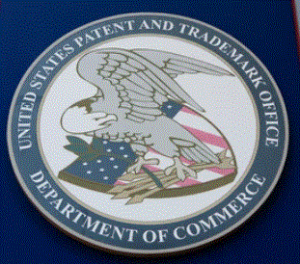Introduction:
Application costs for patents are a necessary evil. However, by reducing those fee in comparison to major organizations, the US Govt. aims to make patenting process more affordable for small and micro enterprises and individual inventors. This multi-tiered structure aims to promote innovation while giving small businesses and independent innovators a relief and in pursuant of the same, the Govt. has increased the discount on patent fee for small and micro enterprises even further.
[Image Sources : Shutterstock]
The Unleashing American Innovators Act of 2022 which was included in the Consolidated Appropriations Act of 2023[1] was just passed by the Congress and signed into law by President Biden on December 29th 2022. The law increased discounts on patent fees for Small and Micro Entities along with requiring the creation of Southeast Regional Office and community outreach offices in order to support the USTPO’s expanded outreach and pro bono efforts. With immediate effect small entities are eligible for a 60% discount and micro entities are now eligible for an 80% discount against the previously sanctioned 50% and 75% respectively. To take these modifications into account, the USPTO Fee Schedule has been revised. Refunds will be given for the difference between the former higher fee rates and the new lower fee rates for small and micro entity payments (other than the issue fee) that were paid on December 29th 2022, before the law’s enactment. There is no need to submit a refund request for these payments because the refund will be handled before the end of January 2023. The fee reduction is clearly intended to enable more affordable access to the US patent system in order to encourage creativity for solo investors, small enterprises and college/universities, as the name of the Unleashing American Innovators Act suggests.
The Unleashing American Innovators Act also added a new punishment for false claims in response to the possible temptations to fraudulently claim discounts for small and micro entities to benefit from the additional reduced fees. Under the New Rules, regardless of whether the Director discovers the false assertion before or after a patent is awarded, any entity that is found to have fraudulently claimed a fee reduction under this section is will be liable to a fine that will be assessed by the Director and will not be less than three times the amount the entity failed to pay as a result of false assertion. It is unclear how this will accommodate with the current patent regulations which state that “any attempt to fraudulently establish status as a small entity” is considered “a fraud or attempted on the office”, which adversely impact the recognition ad enforcement of the patent. However, if established “in good faith” and discovered later to be an error, it can be excused by paying the deficiency fee and modifying the entity status. The Manual for Patent Examining Procedure (MPEP) emphasizes that there is a responsibility to look into eligibility to claim small entity status, which must be confirmed prior to the small entity status first claimed, once more when the issue fee payment is made, and again when each maintenance fee payment is made. We must wait to find out how the USPTO integrates the new penalties into the existing system, assuming that it issues a proposed rulemaking.
Author: Astha Singh 3rd year, a student of New Law College, Bharati Vidyapeeth, Pune, in case of any queries please contact/write back to us via email to chhavi@khuranaandkhurana.com or at Khurana & Khurana, Advocates and IP Attorney.
References:
- Patent fees for small and micro entities reduced, United States Patents and Trademarks Office
https://www.uspto.gov/subscription-center/2022/patent-fees-small-and-micro-entities-reduced
- Fee Schedule, United States Patents and Trademarks Office
https://www.uspto.gov/learning-and-resources/fees-and-payment/uspto-fee-schedule?MURL=fees
[1] The Unleashing American Innovators Act 2022 can be viewed on page no. 1060.




